To succeed, one must have a specific idea of what that success looks like. When this isn’t the case, it’s impossible to discern wins from losses and be certain your goals have been achieved.
If asked to define success in terms of a specific project or business, many would struggle not to answer in broad terms. But to truly succeed (and learn from those successes) we must dive into the factors that constitute success. These are known as critical success factors.
Critical success factors are easier to achieve with the right tools. ProjectManager is award-winning project management software that offers Gantt charts where project managers can plan projects, track all four types of dependencies, set a baseline and more. Project dashboards automatically capture and track live data that can be printed as a project report. Get started with ProjectManager today for free.
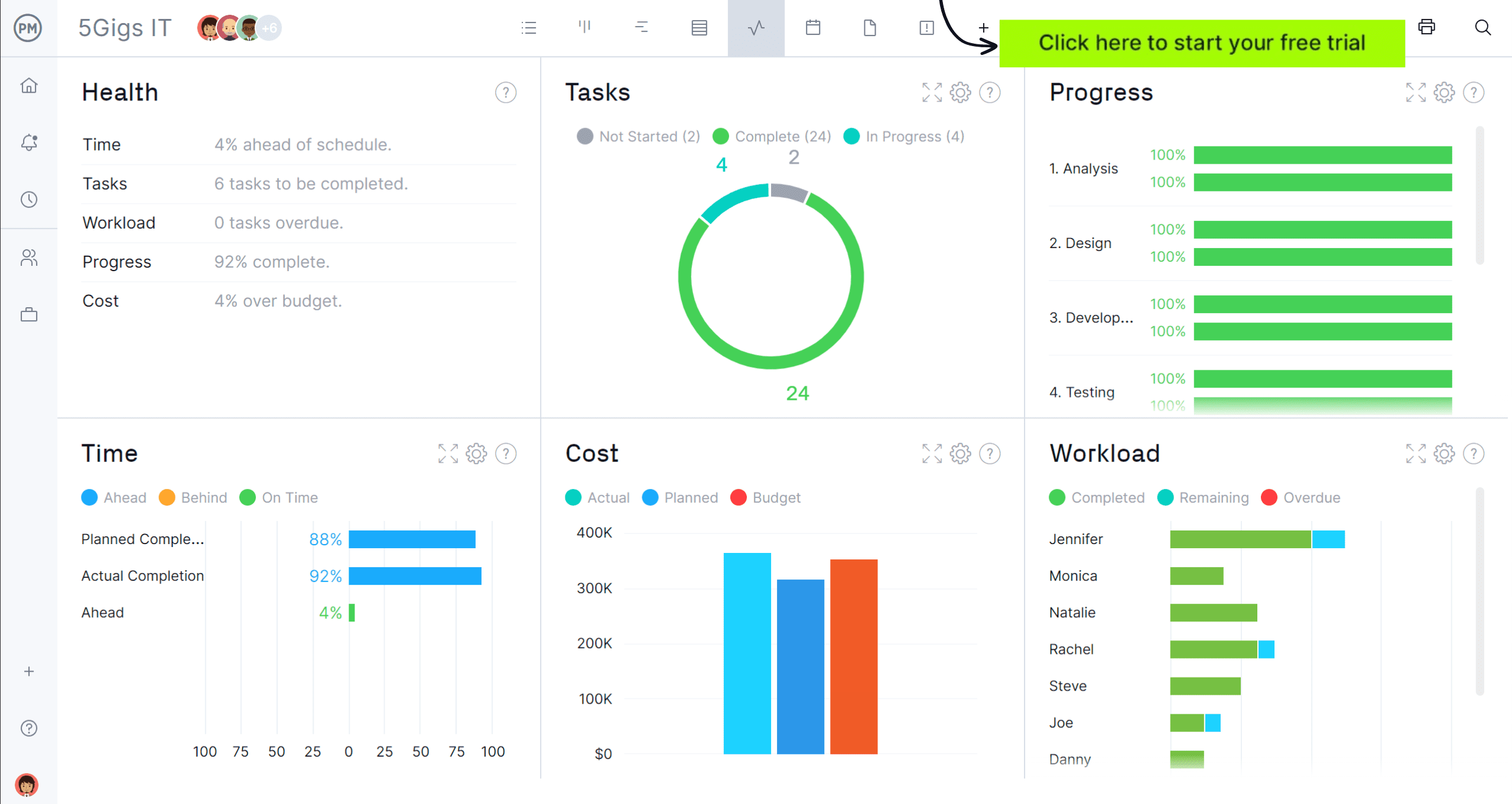
What Is a Critical Success Factor?
A critical success factor is something an organization, business or project must accomplish to fulfill its goal. Critical success factors help a team or organization decide what they should focus on and compare progress to the goals that are set.
These goals are often called deliverables. Different deliverables will have different critical success factors, and these factors culminate to qualify the effort as either a success or a failure. Therefore, if a deliverable is the goal, a critical success factor is what is needed to fulfill this goal.
To clarify, critical success factors are not a measurement of success, but rather the systems through which a company succeeds. These systems work in the “background” of operations and projects at all times.
Why Do Critical Success Factors Matter?
Defining and monitoring critical success factors is the only way to keep an eye on whatever the deliverables demand. If a project or organization only knows the destination they want to reach, and not how they’re going to get there, it’s easy to get lost in the weeds. Critical success factors are the only way to know exactly what is needed to achieve all deliverables. Without this knowledge, deliverables are hypotheticals.
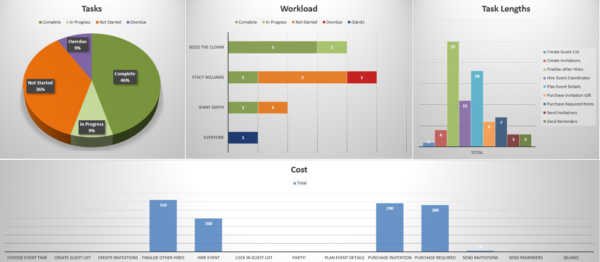
Be careful not to confuse critical success factors with metrics of success. These metrics already exist as KPIs (key performance indicators) and critical success factors serve another purpose.
A critical success factor should be directly related to a business strategy. Imagine the goal is to increase clientele by a certain percentage. Some might be reviews of customer service and increases in outreach efforts, papers, etc. Without a record of these items, areas of improvement can’t be identified, nor can areas the team excelled at.
When Should You Define Critical Success Factors?
Critical success factors should be defined during the planning phase of the venture, at the same time as deliverables. By defining these goals and critical success factors simultaneously, a clearer picture of what specific steps must be taken to accomplish the tasks appears.
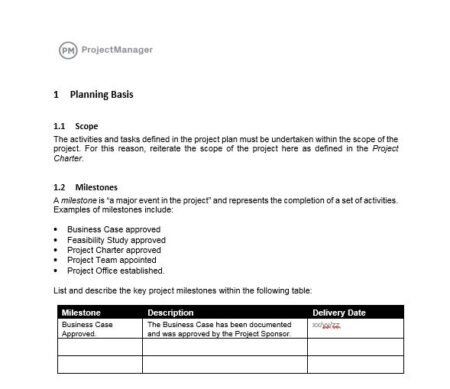
The best practice is to define no more than five per deliverable, though there may be a few more depending on the size and scope of the project. If there are too many critical success factors, it becomes difficult to keep track of each of them. Things can quickly become convoluted.
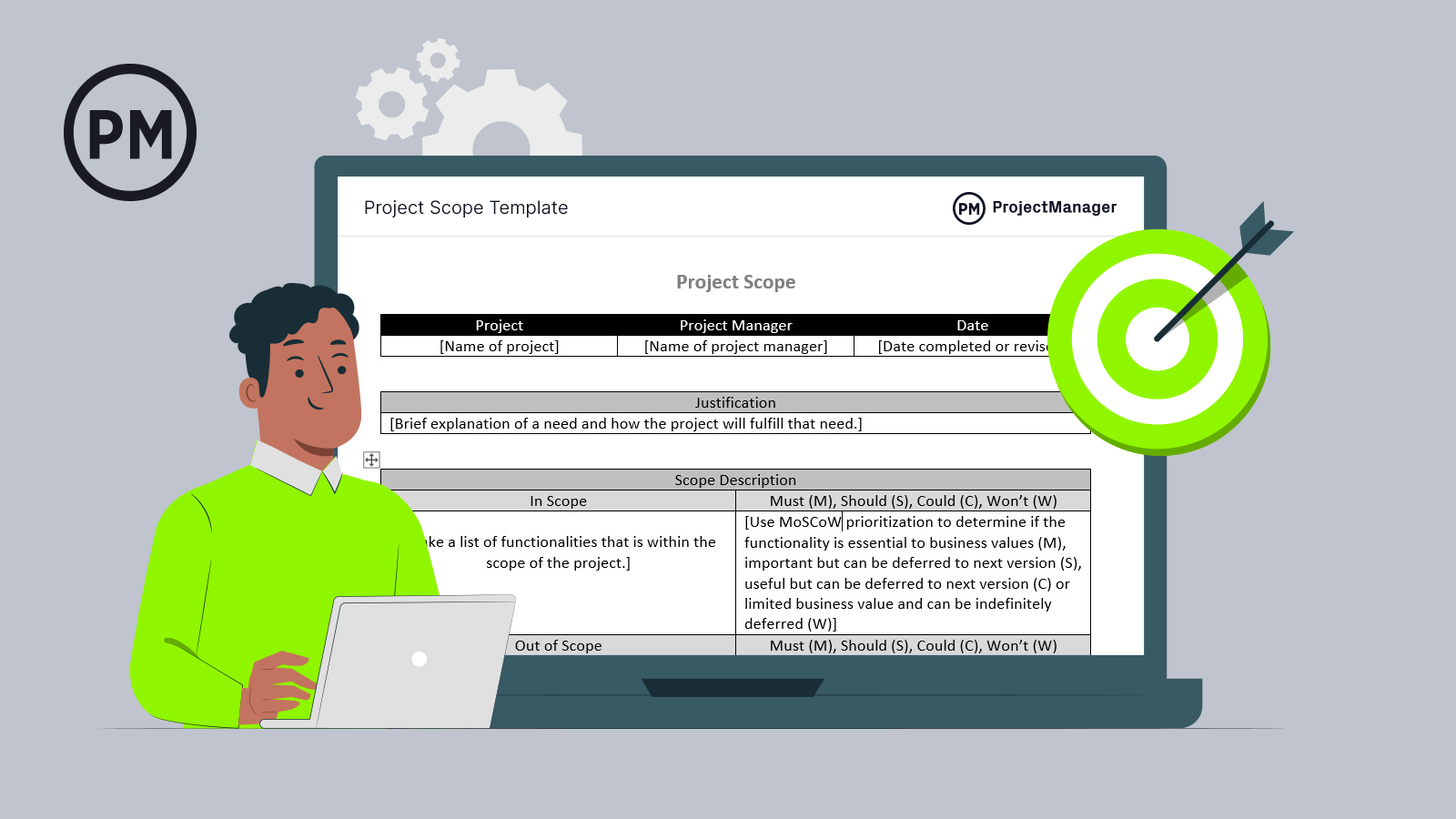
Get your free
Project Scope Template
Use this free Project Scope Template for Word to manage your projects better.
Critical Success Factor Examples
Determining critical success factors can be challenging. Deliverables vary from team to team and project to project, and examples of these will be just as unique. Here are a few critical success factor examples for different organizations, departments, stakeholders, etc.
A reminder: this is not a list of deliverables. These are examples of what various deliverables might require.
- Improved rates of social media engagement
- Improved email open and click-through rates
- Faster turnaround in creating content assets
- Maintaining a ‘no accidents’ status on a job site
- Increasing clientele each month
The list goes on. No matter the deliverable, a critical success factor is something that fuels the greater goal. Other general examples of critical success factors are new leadership strategies, improved company culture, new operations methods, improved customer service and better quality equipment. Each of these can be applied to a huge list of different deliverables.
Critical Success Factor: Key Terms
To understand what a critical success factor is, you must first understand what affects the system itself. Three examples of these are CSCs, KSAs and KRAs:
CSC: Critical Success Criteria
CSC stands for Critical Success Criteria. If a critical success factor is what a deliverable needs to be achieved, then a CSC is what exactly qualifies the deliverable as successful/achieved.
KSA: Key Success Area
KSA stands for Key Success Area. ‘Key Success Area’ is another common name for a critical success factor. Rest assured, this is the same concept as a CSF and should be treated as such.
KRA: Key Result Area
KRA stands for Key Result Area. A KRA refers to specific factors different employees and departments will concentrate on depending on their roles. As the name suggests, the results from these roles will vary. To accurately define key result areas, a manager or stakeholder must completely understand their role and responsibilities. Otherwise, the KRAs will not be aligned with their tasks. But, when defined accurately, KRAs show the exact targets the individual, department or organization needs to hit.
How ProjectManager Helps You Achieve Success
ProjectManager is online project management software that offers all the tools you need to plan, initiate, track and report on projects every step of the way. Since we’re a web-based software, you can track, manage and report on critical success factors on the go.
Effortlessly create schedules with our online Gantt charts. Assign tasks, monitor all project details and communicate with team members with a variety of tools to choose from. Decide which options are right for your project and customize how it’s managed.
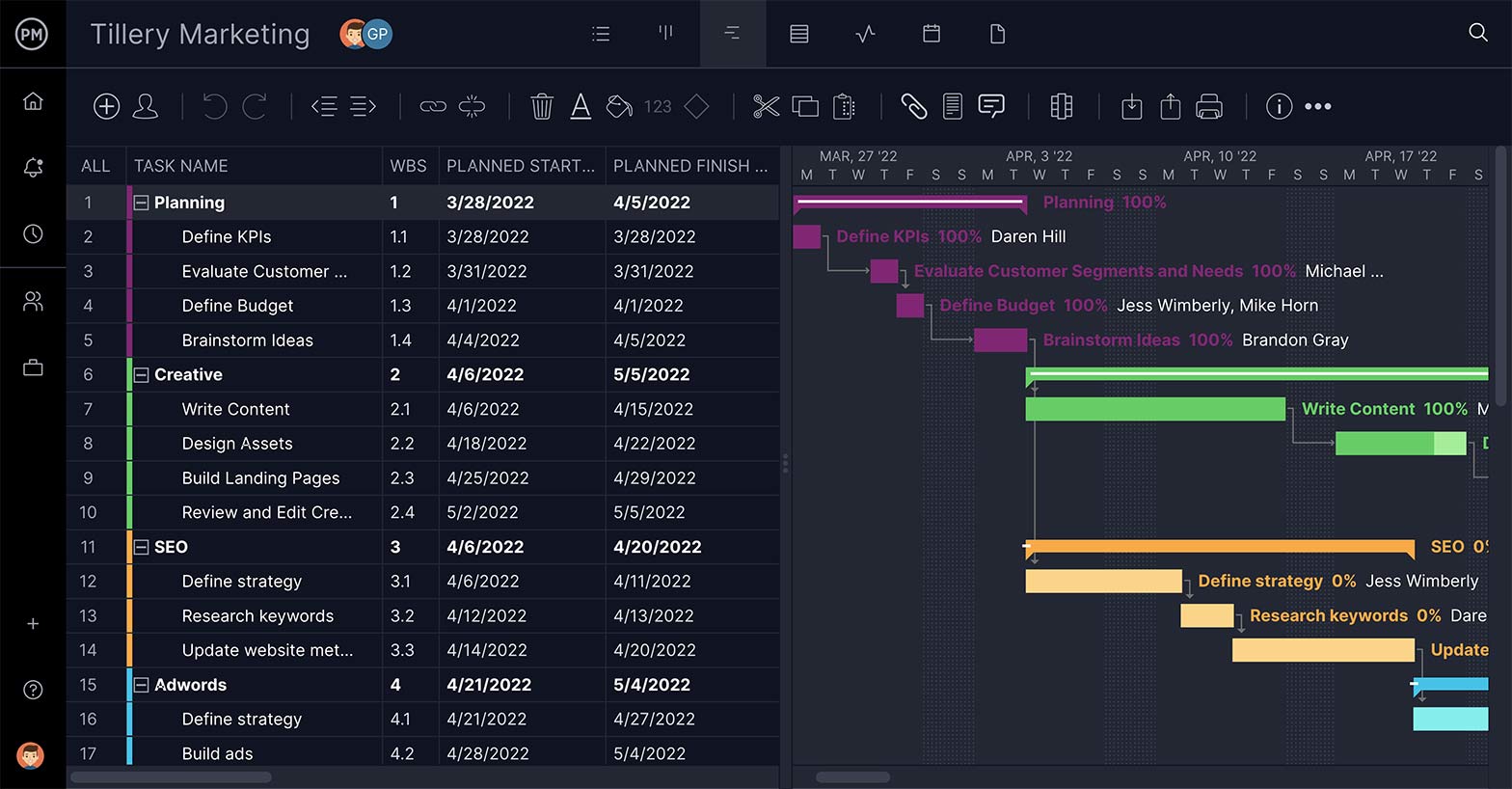
Track Progress in Real Time
Find all the information you need using the online dashboard. Our software automatically takes updates to your project’s tasks and creates easily scannable charts and graphs. This makes it easy to give updates to your stakeholders at meetings to keep them in the loop.

In-Depth Analysis Without Leaving the Software
If your stakeholders are looking for more in-depth data, our software has one-click reporting that allows you to select only the data that is most important to it’s target demographic. Generated reports can include project variance, workload and more. Catch issues before they become problems!
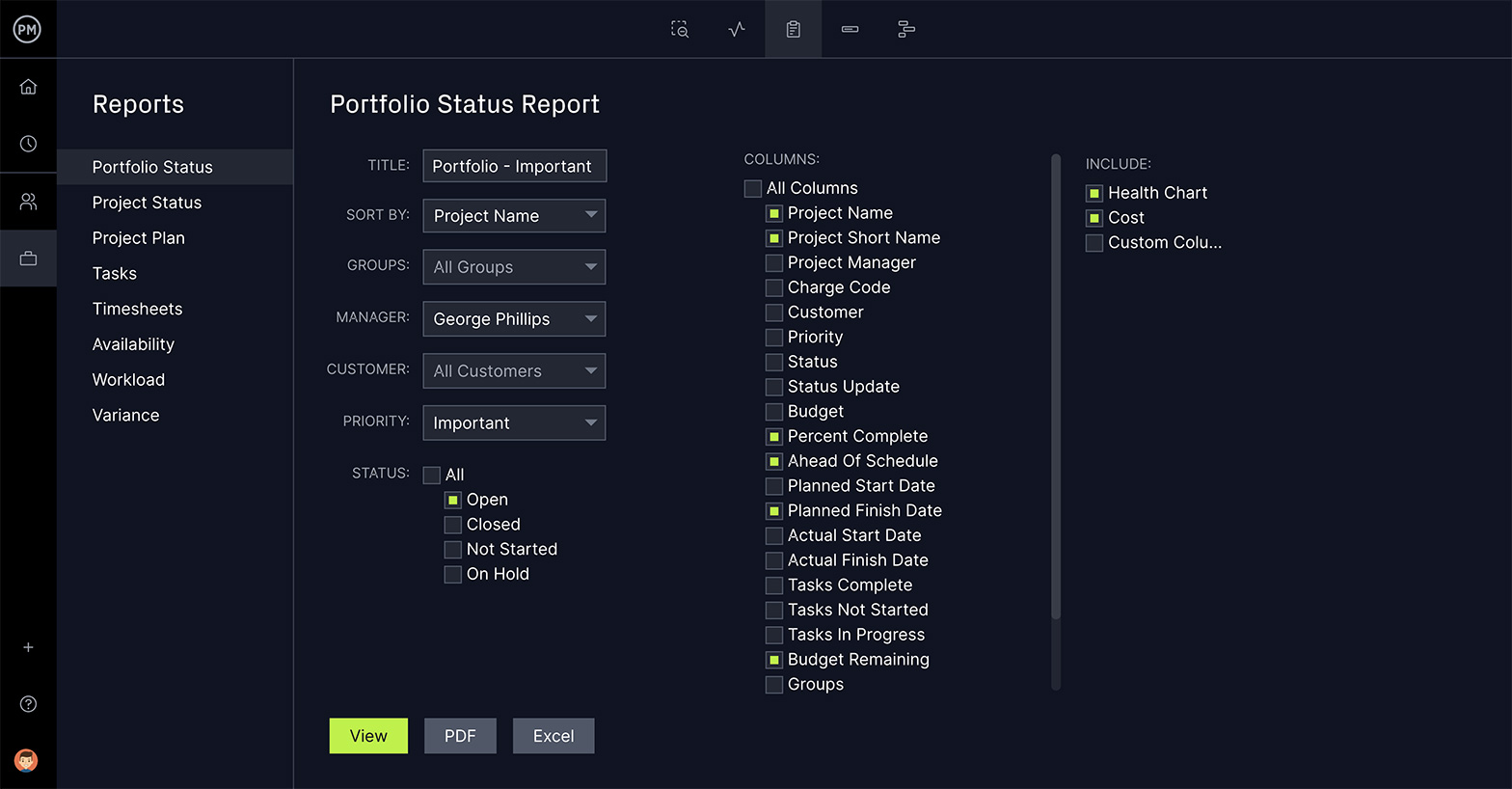
Critical success factors vary from project to project, so you need a tool that can do it all. Good project management requires a strong project management tool to ensure that your project is a success. ProjectManager.com gives your team all the tools they need to collaborate on critical success factors and increase their efficiency. Try our award-winning software with this free 30-day trial.

